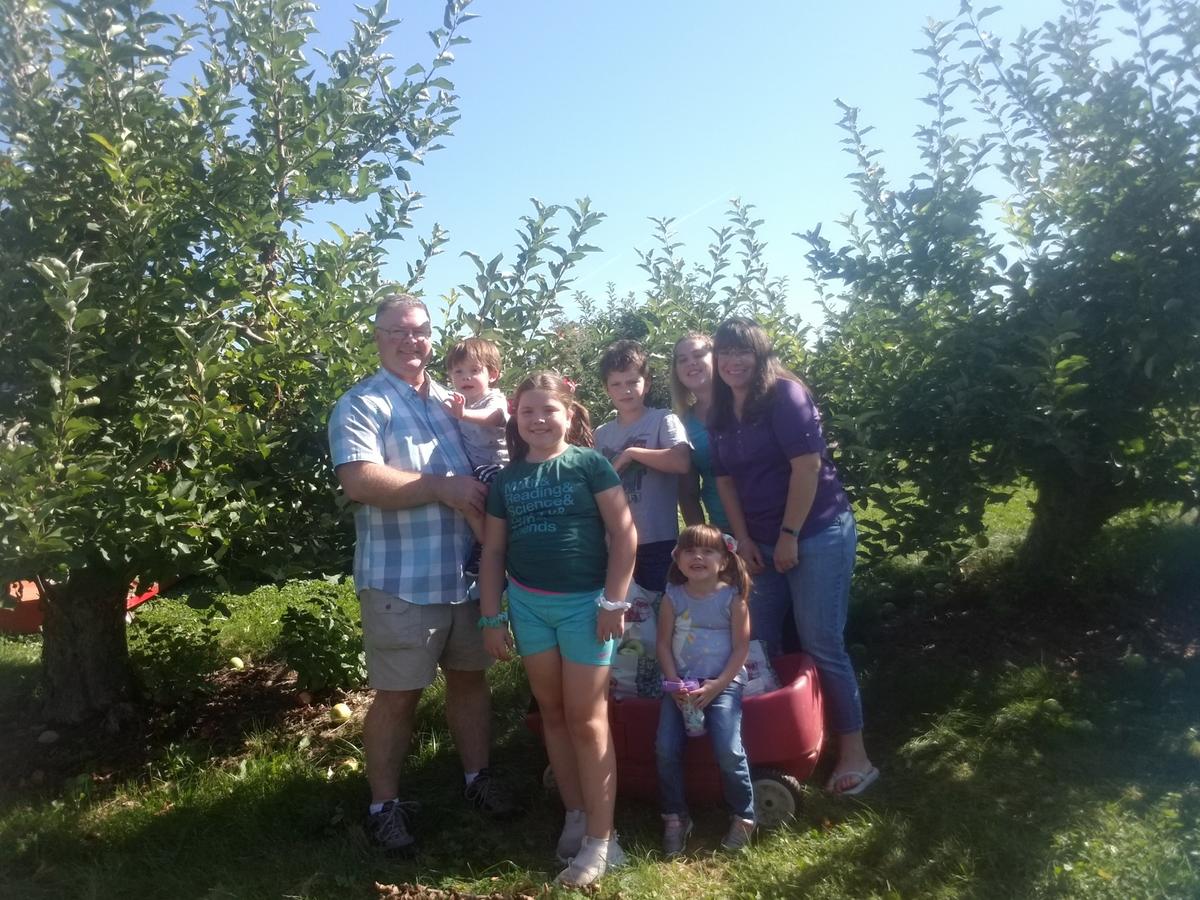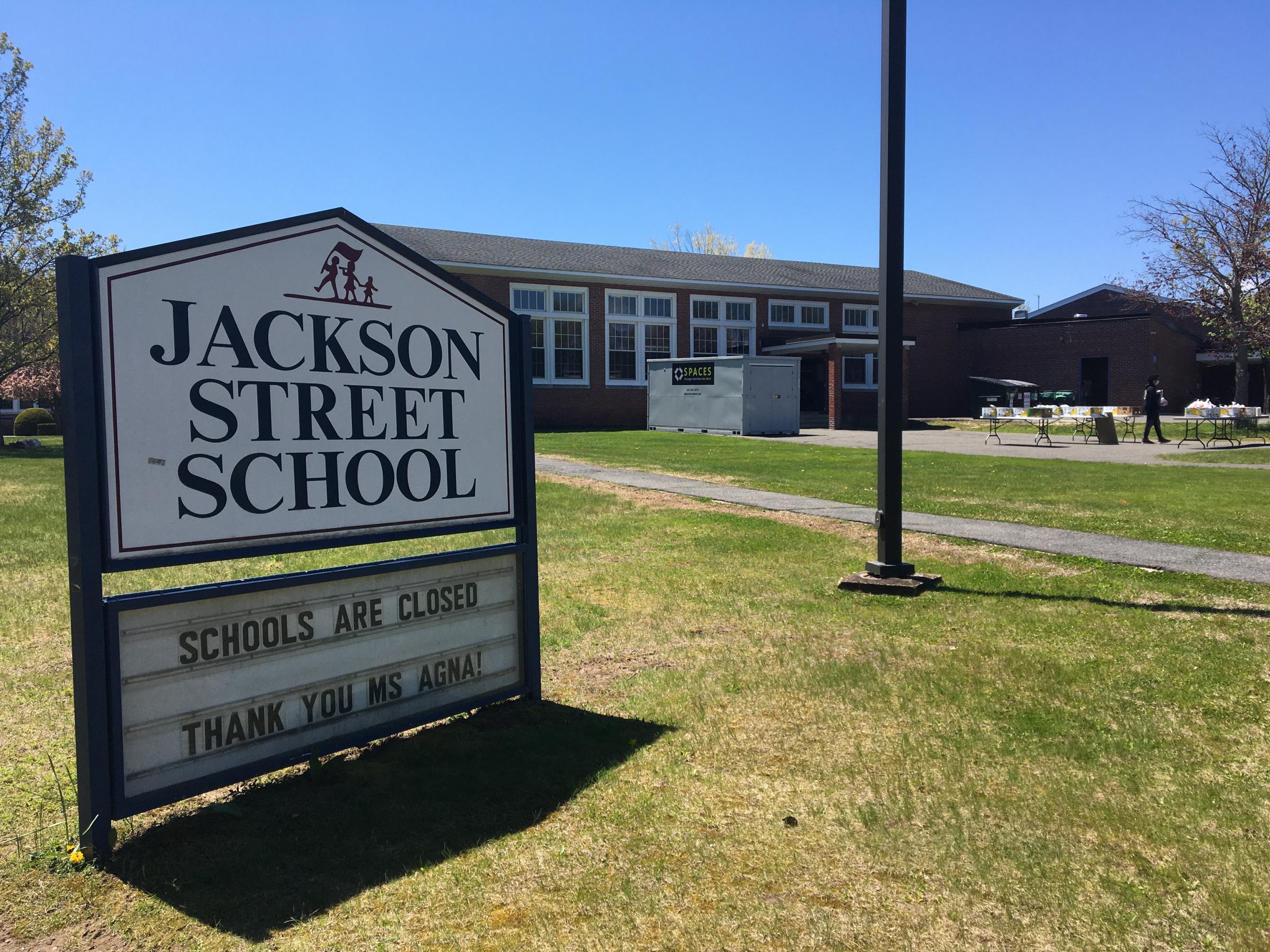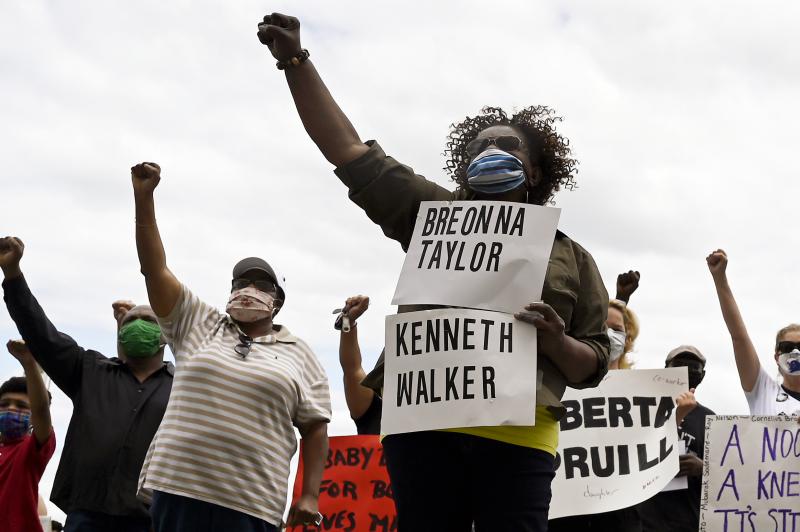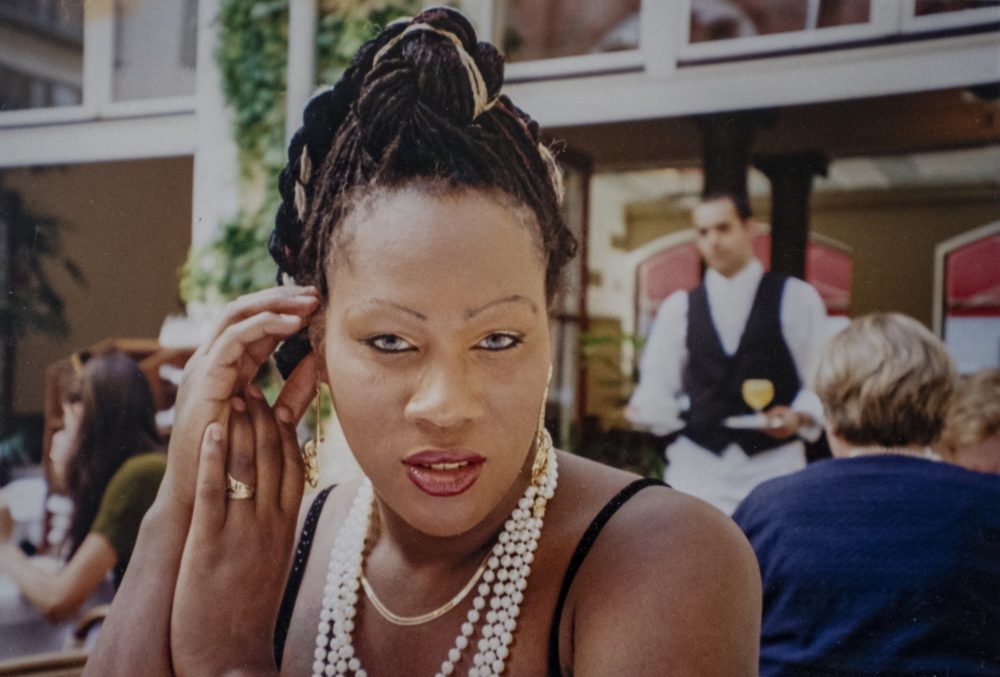Episode 210: Teachers Consider Quitting Job In Face Of Health Risks; A Doctor Vows To Speak Up Against Racism
This week on NEXT, we hear from teachers who are agonizing over going back to school and putting their families and themselves at risk — or quitting their jobs. Plus, a doctor who has experienced racism vows to stop being silent when she witnesses injustice. And we remember a Black transgender woman whose brutal murder in Boston helped spark a global movement.
As Schools Reopen, Teachers Weigh Their Career vs. Health

Kelly Bresnahan and her family are weighing whether to return to school and increase their risk of exposure to COVID-19. (Courtesy of Kelly Bresnehan)
School districts across New England continue to face a lot of unknowns. One big question is whether teachers with health concerns have to return to school, or if they can work remotely. This is particularly challenging for healthy teachers with family members who are at higher risk for complications if they contract COVID-19 — disability laws and coronavirus legislation don’t do much for them.
“I can request a leave of absence for a year. Or I can resign which means I would have no income and no health insurance,” said high school teacher Trevor Duval, whose wife has kidney disease and is fighting cancer.
New Hampshire Public Radio’s Sarah Gibson caught up with three teachers in New Hampshire who are in the midst of figuring out how their districts will accommodate them and whether that will be enough.
Parents Are Considering ‘Homeschool Pods,’ But Some Educators Warn Of Inequities

Ryan Merton is considering pulling is daughter out of Jackson Street Elementary School in Northampton, Mass. for a year and forming a homeschool pod. (Nancy Cohen/NEPM)
As Massachusetts school districts submit their fall proposals to the state, many parents are coming up with their own contingency plans. Some are considering a type of communal homeschooling known as homeschool pods. But as New England Public Media’s Karen Brown reports, critics have raised concerns about widening educational inequities.
Ryan Merton, who is exploring a private homeschooling pod option for his daughter in Northampton, Massachusetts, said he is aware of those concerns.
“It will be as [unequal] as life always is,” Merton said. “You know, the rich will have microscopes and big screen computers for everyone. But I think it misses something to say that it is basically evil to form pods.”
A Doctor Who Has Experienced Racism Commits to No Longer Being Silent

Dr. Huma Farid with her family. (Courtesy Huma Farid)
Since the killing of George Floyd, some white Americans have been examining their role in perpetuating racism and are committing to no longer be silent and inactive. Huma Farid, a Pakistani-American and obstetrician at Beth Israel Deaconess Medical Center in Boston, recently wrote a commentary for WBUR’s blog Cognoscenti, “The ‘Shame And Rage’ Of Being A Minority In America Kept Me Silent. Not Anymore.” As a woman of color, Farid says there have been times — especially in her role as a doctor — when she has remained silent and wished she hadn’t.
“It’s not enough for you to not be racist. You have to actively be an anti-racist,” Farid told NEXT.
You can read her commentary here.
‘It’s Happening To All Of Us’: The Way Black Women Are Policed Is A Health Issue

Caravan 4 Justice activists and protesters gather at the north side of the Connecticut State Capitol in Hartford to demonstrate against the systemic abuse of police power perpetrated against the Black community, June 7, 2020. (Joe Amon/Connecticut Public/NENC)
The lifetime risk of being killed by police is highest for Black men, and their deaths have sparked waves of recent protests and rallies in New England and across the country. But Black women and girls have also fallen victim.
“Black women tend to be the pillars and the ones that take the hits and the ones that show up and defend, and the ones that clean up the mess afterwards and all of that,” said Claudine Fox, campaign manager for the ACLU of Connecticut.
As Connecticut Public Radio’s Nicole Leonard reports, experts and advocates call the policing of Black women a health care issue.
Two Decades After Her Death, Rita Hester’s Family Reflects On Her Spirit

Rita Hester. (Jesse Costa/WBUR)
In June alone, at least five Black transgender women were killed nationwide with several more killings following in July. Last year, the American Medical Association described the trend of violence against the transgender community as an epidemic. Rita Hester, who was killed in Boston in 1998, sparked a global movement for trans rights and an annual vigil in November known as Transgender Day of Remembrance.
“We want her to be looking down at us smiling. We want her legacy to move on and to mean something. We don’t want her death to go in vain,” said Chastity Bowick, executive director of the Transgender Emergency Fund of Massachusetts.
As WBUR’s Cristela Guerra reports, even as Bowick pushes to keep Hester’s story alive, her case remains unsolved two decades later.
NEXT Wants to Hear From You:
A couple weeks ago, we asked you this question: Are the pandemic and racial justice protests motivating you to take more or less action on climate change? Listener Gerhard Schade, who lives in Mystic, Connecticut and summers in Maine, had this to say:
“The biggest thing we as individuals can do about climate change is to vote for the right candidates next November. The nation, and the whole world, needs enlightened leadership that will deploy bold but realistic solutions without delay.”
This week, as we prepare to head back to school, we want to hear how you’re feeling about returning to the classroom — whether you’re a student, teacher, parent or school administrator. Are you worried about safety? Any advice for others going through this process? Leave a voicemail on our comment line: 860-275-7595. Or send us an email at next@ctpublic.org. We look forward to hearing from you.
Also On This Week’s Show:
- Students Say Race Belongs In The Classroom — And Not Just History Class (WBUR)
- As Plastic Waste Surges, Local Woman Helps Cape Reduce Dependence (WCAI)
- Radio Diary: A Message In A Bottle Brings Connection In A Pandemic (WBUR)
About NEXT
NEXT is produced at Connecticut Public Radio
Host/Producer: Morgan Springer
Executive Editor: Vanessa de la Torre
Senior Director: Catie Talarski
Intern: Daniela Luna
Contributors to this episode: Sarah Gibson, Karen Brown, Carrie Jung, Nicole Leonard, Cristela Guerra, Eve Zuckoff and Sydney Wertheim.
Guests: Huma Farid and Gerhard Schade.
Music from New England musicians: Todd Merrell, “New England” by Goodnight Blue Moon, “The Hollow” by The Wolff Sisters, “Haunted Hole” by Wren Kitz and “It’s A Conspiracy” by Kerrin Connolly.
New to NEXT? You can find every episode or one you missed within our archives.
We want your feedback! Send critiques, suggestions, questions and ideas to next@ctpublic.org. Help us spread the word! If you like what you hear, rate and review us on iTunes.
